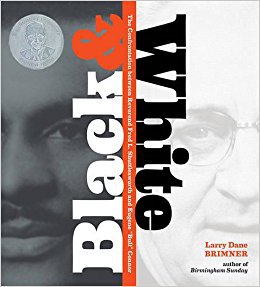
The separation wall on the West Bank that divides Palestinians and Israelis. (photo: Pedro Ugarte/AFP/Getty)
The moral consequences of the triumph of Zionism: Ilan Pappé and Ari Shavit view Israel from different vantage points, but they agree the status quo between Israel and the Palestinians can’t be sustained.By Avi Shlaim / The Guardian
May 14, 2014
[Ed. note: In anticipation of Ilan Pappé’s visit to Seattle next month, we are touching on some of the Israeli “new historians.” This 2014 piece from The Guardian reviews Pappé’s book, The Idea of Israel: A History of Power and Knowledge, and Ari Sahvit’s, My Promised Land: The Triumph and Tragedy of Israel.]
Chaim Weizmann, the first president of the state of Israel, famously said that it is by its treatment of the Palestinians that his country will be judged. Yet, when judged by this criterion, Zionism is not just an unqualified failure but a tragedy of historic proportions. Zionism did achieve its central goal but at a terrible price: the displacement and dispossession of the Palestinians — what the Arabs call the Nakba, the catastrophe.
Zionism achieved its greatest triumph with the establishment of the state of Israel in 1948. The Zionist idea and its principal political progeny are the subject of deeply divergent interpretations, not least inside the Jewish state itself. No other aspect of Zionism, however, is more controversial than its attitude towards the indigenous population of the land of its dreams. Chaim Weizmann, the first president of the state of Israel, famously said that it is by its treatment of the Palestinians that his country will be judged. Yet, when judged by this criterion, Zionism is not just an unqualified failure but a tragedy of historic proportions. Zionism did achieve its central goal but at a terrible price: the displacement and dispossession of the Palestinians — what the Arabs call the Nakba, the catastrophe.
The authors of these two books are both Israelis, but they approach their subject from radically different ideological vantage points. Ilan Pappé is a scholar and a pro-Palestinian political activist. He is one of the most prominent Israeli political dissidents living in exile, having moved from the University of Haifa to the University of Exeter. He is also one of the few Israeli students of the conflict who write about the Palestinian side with real knowledge and empathy.
Pappé places Zionism under an uncompromising lens. In his reading it was not a national liberation movement but a settler colonial project imposed on the Palestinians by force with the support of the west. From this premise it follows that the state of Israel is not legitimate even in its original borders, much less so within its post-1967 borders. To correct the injustice, Pappé advocates a peaceful, humanist and socialist alternative to the Zionist idea in the form of a binational state with equal rights for all its citizens.
Ari Shavit is a member of the editorial board of the liberal Zionist paper Ha’aretz, and one of Israel’s most influential columnists. He is an eloquent exponent of liberal Zionism, but he also exemplifies its ambiguities, inner contradictions and moral myopia.
[Read the full article here . . . ]
Share this:





